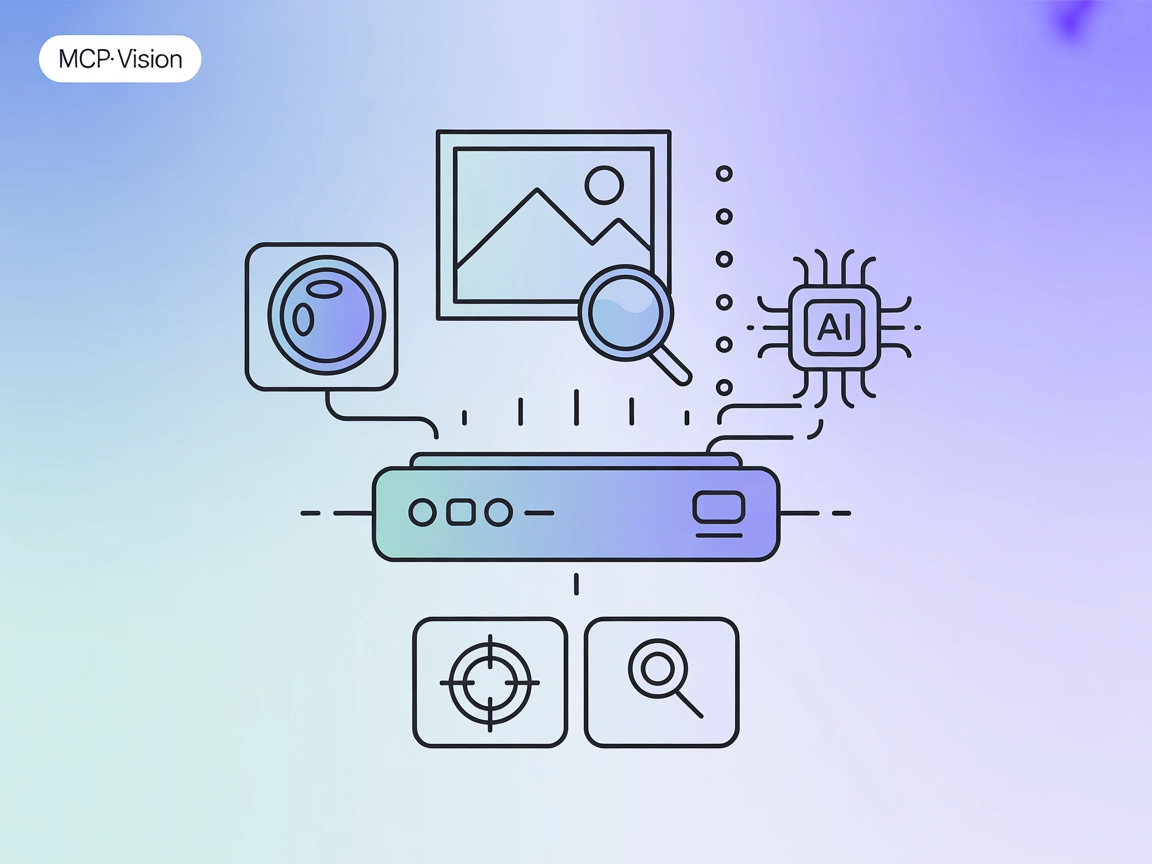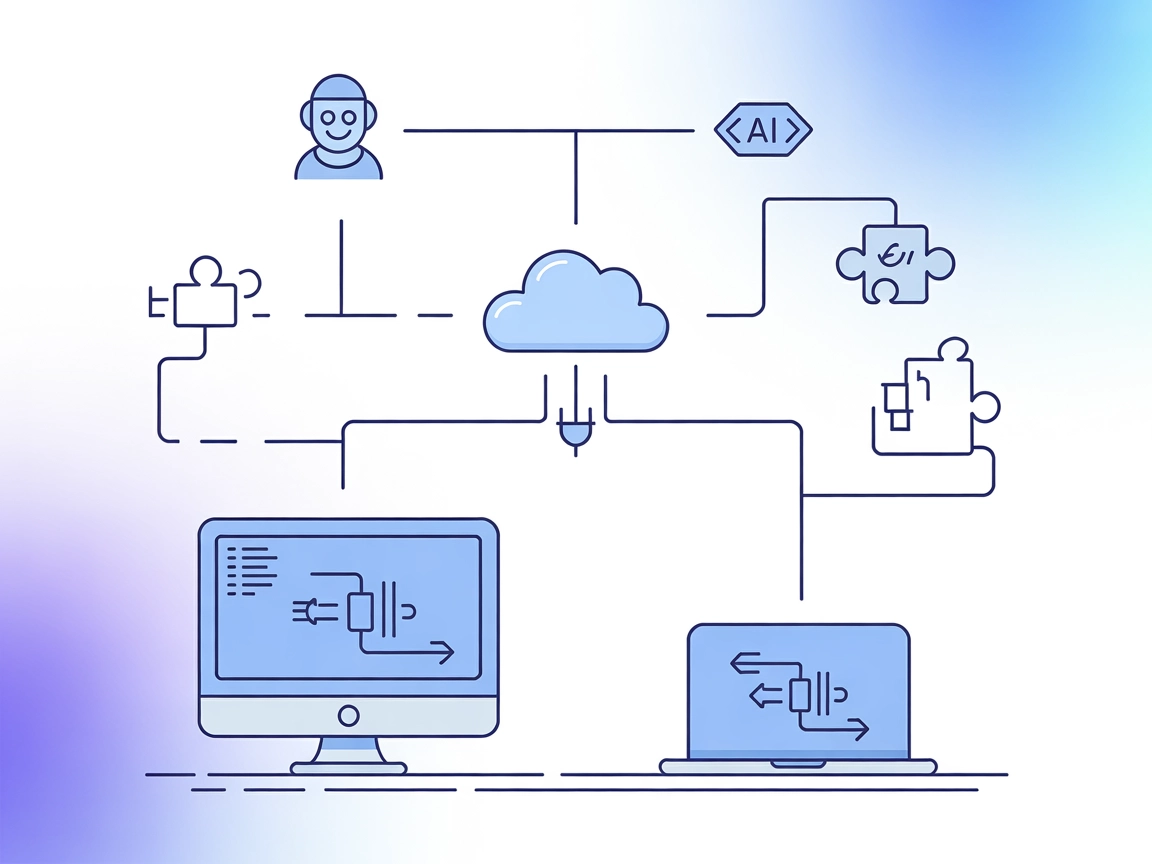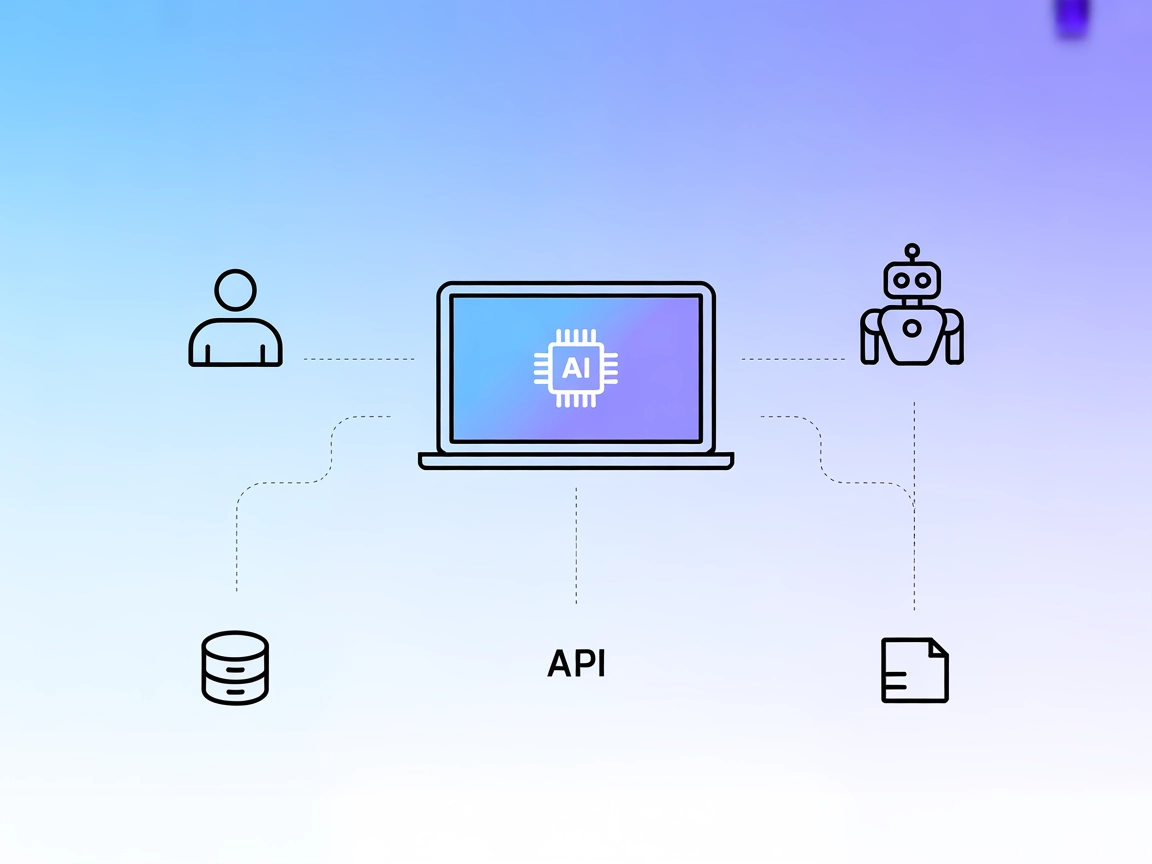
mcp-vision MCP Server
The mcp-vision MCP Server connects HuggingFace computer vision models—like zero-shot object detection—to FlowHunt and other AI platforms, empowering LLMs and AI...

Easily connect your AI agents to HuggingFace Spaces. Automate, manage, and streamline access to external models and AI demos with mcp-hfspace MCP Server in FlowHunt and beyond.
FlowHunt provides an additional security layer between your internal systems and AI tools, giving you granular control over which tools are accessible from your MCP servers. MCP servers hosted in our infrastructure can be seamlessly integrated with FlowHunt's chatbot as well as popular AI platforms like ChatGPT, Claude, and various AI editors.
The mcp-hfspace MCP Server is designed to connect AI assistants with HuggingFace Spaces—external AI models, demos, and APIs hosted on HuggingFace. This server acts as a bridge, enabling AI agents and developers to interact with, query, and manage HuggingFace Spaces programmatically. By exposing endpoints and configurable workflows, mcp-hfspace enhances development workflows for those integrating AI features, such as running ML models or demos, into their applications. It allows automation of tasks like invoking models, retrieving outputs, and managing data exchange, significantly simplifying access to a vast ecosystem of pretrained AI tools and APIs.
No information about prompt templates is provided in the repository or documentation.
No explicit resources are listed or described in the repository or its documentation.
No detailed list of tools (such as those defined in a server.py or otherwise) is available from the accessible files or documentation.
windsurf.json)."mcpServers": {
"hfspace": {
"command": "npx",
"args": ["@evalstate/mcp-hfspace@latest"]
}
}
"mcpServers": {
"hfspace": {
"command": "npx",
"args": ["@evalstate/mcp-hfspace@latest"]
}
}
"mcpServers": {
"hfspace": {
"command": "npx",
"args": ["@evalstate/mcp-hfspace@latest"]
}
}
cline.json)."mcpServers": {
"hfspace": {
"command": "npx",
"args": ["@evalstate/mcp-hfspace@latest"]
}
}
You should secure HuggingFace API keys by using environment variables. Example:
"mcpServers": {
"hfspace": {
"command": "npx",
"args": ["@evalstate/mcp-hfspace@latest"],
"env": {
"HF_API_KEY": "your_huggingface_api_key"
},
"inputs": {
"apiKey": "${HF_API_KEY}"
}
}
}
Using MCP in FlowHunt
To integrate MCP servers into your FlowHunt workflow, start by adding the MCP component to your flow and connecting it to your AI agent:

Click on the MCP component to open the configuration panel. In the system MCP configuration section, insert your MCP server details using this JSON format:
{
"hfspace": {
"transport": "streamable_http",
"url": "https://yourmcpserver.example/pathtothemcp/url"
}
}
Once configured, the AI agent is now able to use this MCP as a tool with access to all its functions and capabilities. Remember to change “hfspace” to whatever the actual name of your MCP server is and replace the URL with your own MCP server URL.
| Section | Availability | Details/Notes |
|---|---|---|
| Overview | ✅ | Brief provided based on repo description and README. |
| List of Prompts | ⛔ | No prompt templates found in repo. |
| List of Resources | ⛔ | No explicit resources section found. |
| List of Tools | ⛔ | No detailed tools list (e.g., from server.py) found. |
| Securing API Keys | ✅ | Example JSON config included above. |
| Sampling Support (less important in evaluation) | ⛔ | No info found on sampling support. |
Based on the above, the mcp-hfspace MCP server offers basic integration and setup support, but lacks documentation on prompts, resources, and tools. Its main strength is clear setup for several platforms and credential management. I would rate this MCP server a 4/10 for documentation and developer-friendliness.
| Has a LICENSE | ✅ (MIT) |
|---|---|
| Has at least one tool | ⛔ |
| Number of Forks | 44 |
| Number of Stars | 297 |
The mcp-hfspace MCP Server acts as a bridge between your AI agents and HuggingFace Spaces, allowing you to programmatically access, invoke, and manage external AI models, demos, and APIs.
You can set up mcp-hfspace MCP Server on Windsurf, Claude Desktop, Cursor, and Cline, each with simple configuration steps to add the server to your workflow.
You can invoke public HuggingFace Spaces, integrate external models into your applications, automate AI model testing, orchestrate data flows, and rapidly prototype new features using Claude Desktop Mode.
Store API keys in environment variables and reference them in your MCP server configuration. See the setup section for example JSON using 'env' and 'inputs' fields.
No prompt templates or detailed tool lists are currently documented for mcp-hfspace. The main strength is its integration and automation capabilities for HuggingFace Spaces.
Leverage the mcp-hfspace MCP Server to seamlessly connect your AI workflows with HuggingFace Spaces for powerful model access and automation.

The mcp-vision MCP Server connects HuggingFace computer vision models—like zero-shot object detection—to FlowHunt and other AI platforms, empowering LLMs and AI...

The Hyperbrowser MCP (Model Context Protocol) Server bridges AI assistants with external data sources, APIs, and services. It streamlines development workflows ...

The interactive-mcp MCP Server enables seamless, human-in-the-loop AI workflows by bridging AI agents with users and external systems. It supports cross-platfor...
Cookie Consent
We use cookies to enhance your browsing experience and analyze our traffic. See our privacy policy.